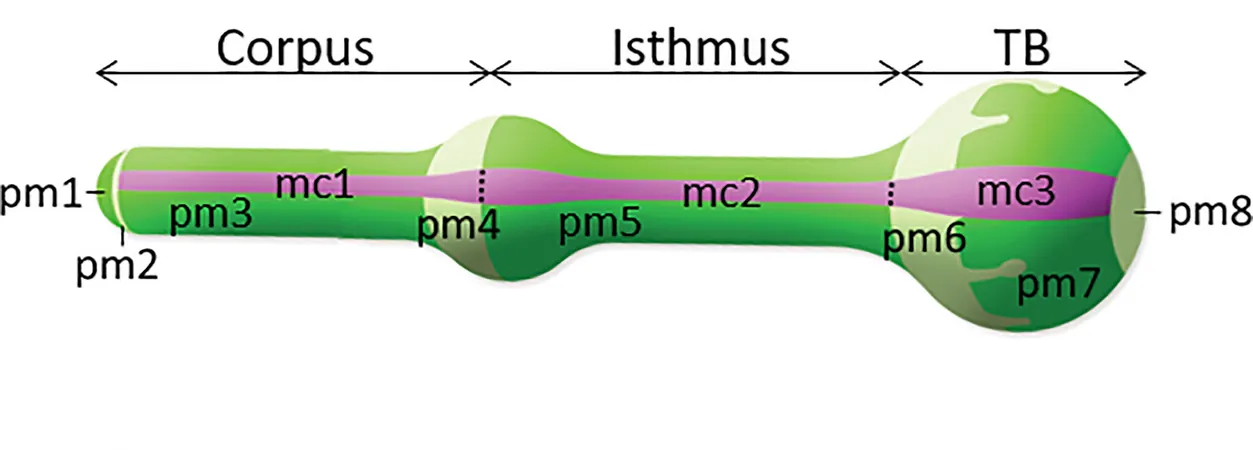
How AI is Revolutionizing Brain Cancer Diagnosis and Treatment: New Guidelines Unveiled!
2024-11-21
Author: Daniel
The Challenge with Current Practices
Brain cancer diagnosis and treatment typically involve radiologists assessing tumor size through imaging scans. However, this traditional method suffers from significant limitations due to its inherent subjectivity. Variabilities in interpretation can lead to discrepancies in treatment options based on which radiologist evaluates the scans, ultimately affecting patient outcomes.
As AI technology continues to evolve, predictive, prognostic, and diagnostic models are becoming increasingly available to healthcare practitioners. However, implementation across different healthcare settings remains inconsistent.
Dr. Raymond Y. Huang, a leading figure in the study and an Associate Professor at Harvard Medical School, emphasized the potential of AI to objectively assess tumor conditions, stating, "AI provides us with tools to determine whether a tumor is progressing or remaining stable. Yet, there's an urgent need for standardized protocols to ensure accurate patient diagnosis and treatment."
AI's Impact on Tumor Evaluation
The innovative AI tools being developed have the potential to transform how tumors are analyzed. "AI can quickly help identify the type of cancer, the specific subtype of tumor, and its grade," noted Dr. Bakas, who is also affiliated with the Indiana University School of Medicine. This capability extends beyond mere diagnosis—AI can assist in monitoring treatment progress as well, facilitating a more dynamic response to changing patient needs.
New Guidelines for AI Integration
The policy review stands as one of two significant readings conducted in alignment with the Response Assessment in Neuro-Oncology cooperative group, a collective endeavor to refine standardized criteria for assessing treatment responses in clinical brain cancer trials.
Central to these guidelines is the need for standardization in the application of AI methodologies in neuro-oncology. The proposed framework focuses on utilizing AI software developed from extensive and diverse patient data, ensuring adherence to World Health Organization criteria for tumor classification, and addressing the processes involved in image acquisition, processing, and analysis.
According to co-author Dr. Thomas Booth from King's College London, these guidelines are a crucial step towards integrating rigorous AI tools into clinical practice. "With these recommendations, we can aim for more consistent and precise AI applications that significantly enhance outcomes for clinicians and patients across the globe."
Future of AI in Cancer Care
Recognizing the nascent stage of AI in oncology, the guidelines represent some of the first comprehensive recommendations worldwide for integrating AI in cancer treatment. Continued research remains imperative. "Ongoing examination of AI models across diverse patient populations is vital for deepening our understanding and improving our strategies," Dr. Bakas concluded.
As the medical community continues to embrace these advancements, we stand at the precipice of a new era in brain cancer diagnosis and treatment, where AI could greatly improve accuracy and patient outcomes. Are we ready for the age of AI-assisted medicine? The future of neuro-oncology is indeed promising!


 Brasil (PT)
Brasil (PT)
 Canada (EN)
Canada (EN)
 Chile (ES)
Chile (ES)
 España (ES)
España (ES)
 France (FR)
France (FR)
 Hong Kong (EN)
Hong Kong (EN)
 Italia (IT)
Italia (IT)
 日本 (JA)
日本 (JA)
 Magyarország (HU)
Magyarország (HU)
 Norge (NO)
Norge (NO)
 Polska (PL)
Polska (PL)
 Schweiz (DE)
Schweiz (DE)
 Singapore (EN)
Singapore (EN)
 Sverige (SV)
Sverige (SV)
 Suomi (FI)
Suomi (FI)
 Türkiye (TR)
Türkiye (TR)